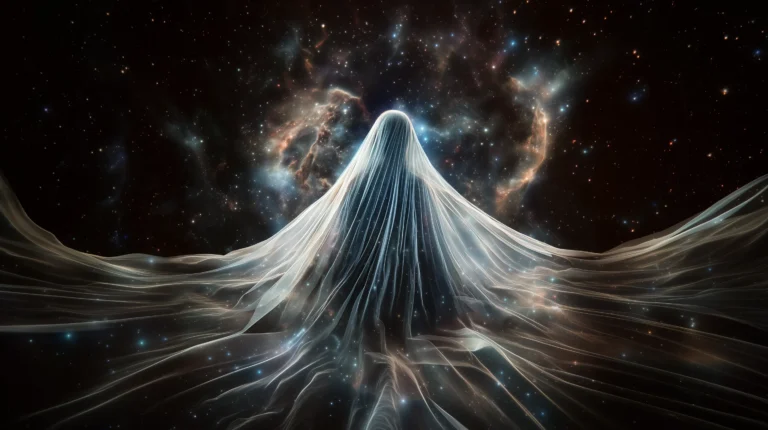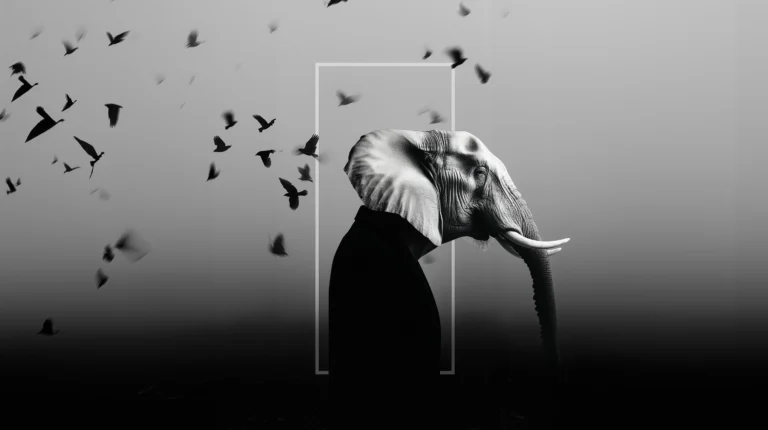Whale Symbolism: Echoes from the Deep
Preface
This guide will serve as a gentle illumination, not delving into deep esoteric knowledge but inviting simple contemplation on existence through the symbolism of the whale.
It is important to consider concepts like synchronicity and intuition as we explore these points.
Often, we are unaware of how many questions remain unanswered—questions we don’t even realize exist.
The whale is frequently seen as a symbol of spiritual guidance, strength, and insight.
The presence of a whale spirit might suggest an invitation to probe deeper into one’s own psyche, urging an exploration of emotions, intuition, and innate knowledge.
Linked with the ocean’s immensity, the whale embodies the connection to the collective unconscious and the continuous flow of existence.
Additionally, the whale’s caring and protective traits may represent a call for emotional healing and reassurance.
It’s important to practice self-compassion, be kind to oneself, and pursue emotional support during difficult periods.
Consider the vastness of the sky, the depths of the sea, the limitations of the human body and mind, and then there’s the ego—the part of us that believes it knows everything and has solved all mysteries.
The ego is like a frog in a well, which thinks the well’s boundaries are the limits of the world. It isn’t until the frog escapes the well that it realizes the true vastness of its surroundings.
Modern psychology has largely failed us, hindered by the egos and greed of certain scientists who scoff at the mysteries of existence, attributing everything to randomness and hard work.
These are mere half-truths. Pharmaceutical companies, too, should shift their focus from viewing people as mere sources of income to sincerely working towards human evolution and minimizing human misery.
A significant number of people fail to mature psychologically and spiritually, resembling frightened frogs in the dark well of their egos.
When confronted with ideas that challenge their limited worldview, their immediate reactions are either fight or flight—because these responses require the least effort.
True enlightenment, however, demands the overcoming of laziness, the cultivation of humility, and the harnessing of life force for the collective good.
The first task of a true magician is to transcend laziness and channel their inner vitality outwardly for the benefit of all. In doing so, their actions remain untainted by ego.
We must move beyond Freudian psychology and integrate spirituality as a legitimate aspect of the human psyche, especially to prevent a mental health pandemic exacerbated by reliance on suppressive medications. Instead, we should embrace the psychedelics that nature provides.
Let’s explore the symbolic representations of the whale.
Whale Symbolism
Vastness and Depth:
When thinking of whales, it’s natural to associate them with vastness due to their immense physical size.
Whales, being the largest creatures in the ocean (and on Earth), inherently symbolize magnitude, grandeur, and profundity.
Their deep and long dives also serve as a metaphor for profound knowledge, mysteries, and exploration.
Encountering a whale might suggest a touch with the profound or the mysterious depths of the self or the universe.
Emotion and the Unconscious:
The association of water (especially the deep ocean) with emotions and the unconscious is a longstanding one in various cultural and psychological traditions.
Since whales inhabit the depths of the ocean, they can symbolize not just the vastness of the sea but also the depths of our own minds and emotions.
The ocean’s depths are often likened to the unconscious mind, full of hidden feelings, desires, and memories.
Spiritual Connection:
In many cultures, the whale is seen as a guide or messenger from the divine. Its massive presence and gentle nature can be seen as a spiritual force, guiding and protecting.
Transformation and Resurrection:
The biblical story of Jonah and the whale is a tale of punishment, reflection, and eventual rebirth or resurrection. Being “swallowed” by challenges or darkness and then “re-emerging” is a powerful symbolic journey.
Ancient Wisdom:
Whales, being some of the oldest creatures on Earth, often symbolize ancient knowledge or the wisdom of the ages. They’ve “seen” the changes of the world and carry that memory with them.
Communication:
Whales are known for their unique songs and sounds, which can travel vast distances underwater. This can be symbolic of deep or unique forms of communication, understanding, and connection.
Strength and Freedom:
Despite their size, whales are graceful and possess a sense of freedom as they move through vast oceans. They can represent both power and liberation.
Wisdom and Creativity:
Whales often represent deep understanding and empathy, as well as an intimate knowledge of the cycles of life and death.
Their nature also resonates with boundless imagination and creativity. When a whale releases air from its blowhole, it can be seen as a metaphor for the release of one’s inner creative power.
Balanced Creativity:
The way whales employ sonar and echolocation connects them to the themes of guidance and learning from feedback.
While they embody the spirit of limitless creative expression, whales also impart lessons on using one’s creative gifts in a more measured manner.
Whale’s Belly
The symbolism of a “whale’s belly” primarily finds its roots in ancient literature, most notably in the biblical story of Jonah.
Let’s explore this and other symbolic interpretations in detail:
Jonah and the Whale:
This is perhaps the most well-known reference involving the inside of a whale.
According to the biblical tale, Jonah was swallowed by a large fish (often depicted as a whale) after he tried to escape God’s instruction to go to Nineveh and pronounce judgment upon its people.
Jonah spent three days and nights in the belly of the whale. This experience represents a kind of “death and rebirth” motif.
Jonah’s time inside the whale symbolized introspection, transformation, and ultimately a return to the path that Self had set for him.
Dark Night of the Soul:
Being in the depths, in the belly of a massive creature, can symbolize a period of deep introspection, isolation, or suffering.
It’s a time of trial, where one might feel distant from light, hope, or external reality, much like a dark night of the soul.
Transformation:
The belly of the whale can also represent a womb, a place of gestation where something new is formed and then reborn.
This is similar to the cocoon phase for a butterfly. It’s a space where old aspects of oneself or one’s life are shed, and new ones are formed.
Feeling Trapped:
On a more straightforward level, being inside a whale’s belly can symbolize feeling trapped, overwhelmed, or consumed by something larger than oneself.
This can be a situation, emotion, or challenge that feels suffocating or insurmountable.
Return to Basics or Instincts:
In some interpretations, especially in dream analysis, being inside a creature can mean a return to more primal feelings, instincts, or ways of being.
Journey to the Unknown:
Delving into the deep or being swallowed whole is also a representation of venturing into the unknown or facing something that is incomprehensible in its vastness.
Embracing the Depths
The whale, in its majestic enormity and profound depth, stands as a powerful emblem in various cultures and narratives.
Representing everything from vast knowledge, emotional depths, and spiritual connections to transformative journeys, the symbolism of the whale touches many aspects of human consciousness.
Its intriguing counterpart, the “whale’s belly,” deepens this narrative, exploring themes of introspection, rebirth, challenges, and primal instincts.
Whether viewed as a beacon of ancient wisdom or a mirror to our emotional landscape, this aspect of the whale delves into the darker, introspective sides of our psyche.
In the 1960s, when people experienced spiritual awakenings, they expressed themselves by painting their cars and wearing distinct clothing, earning them the label “hippies.”
Unfortunately, addiction, promiscuity, and societal disapproval contributed to their downfall.
However, valuable lessons were learned from this era. Instead of addressing these issues constructively, governments typically reacted in the way humans often do: by shutting down, discarding, and denying everything related to the movement.
What was needed was a greater effort and openness to understand the phenomenon.
Now, spiritual awakenings are occurring daily, and unlike the hippies, people are not displaying their transformations as openly.
This could become a real societal issue if significant efforts are not made to elevate the collective consciousness of human society.
How long can we remain bound by religious dogmas and the fears of heaven and hell? It is crucial to cultivate human compassion, both towards ourselves and others, to ensure that future generations can live in peace.
This call for a deeper understanding and openness is mirrored in the whale’s symbolism, which invites us to embrace the complexities and profound mysteries of existence itself.
Just as the whale navigates the vast oceans, we must explore the depths of our collective psyche.
If we are to be metaphorically swallowed and reborn from the belly of this great creature, we must be ready this time.
By learning from the past and remaining open to the spiritual transformations of the present, we can prepare for a more enlightened future, transcending old fears and embracing a new era of understanding and connection.
We need more understanding of human nature, because the only danger that exists is man himself — he is the great danger, and we are pitifully unaware of it. We know nothing of man — far too little.
Carl Jung
Whale’s Wisdom
In the depths of vast seas, a giant stirs,
Guiding through mysteries, its presence confers.
A call to the deep, where secrets sleep,
In the whale’s song, the wisdom we reap.
Surfacing from depths with lessons anew,
A journey within, to discover what’s true.
Beyond the ego, where vast oceans lie,
The whale leads us under the expansive sky.
From the 60s’ spirit to today’s quiet rise,
Awakenings shared under the same vast skies.
A plea for compassion, a need to explore,
To embrace deeper truths and open new doors.
As we delve into psyches, both ancient and new,
The whale’s symbolism in the currents, it grew.
Inviting us all to a profound rebirth,
Connecting the heavens, the seas, and the earth.
Let this be our guide, as it was from the start,
The whale’s deep calling, a map of the heart.
Let’s be cautious this time, clean the cauldron well,
To not repeat mistakes, in clearer waters we’ll dwell.
Let’s tread gently now, cleanse the wellspring deep,
So history’s errors in clearer seas don’t seep.
Mind, body, and ego, know their bound constraints,
Let intuition rise, where compassion paints.







